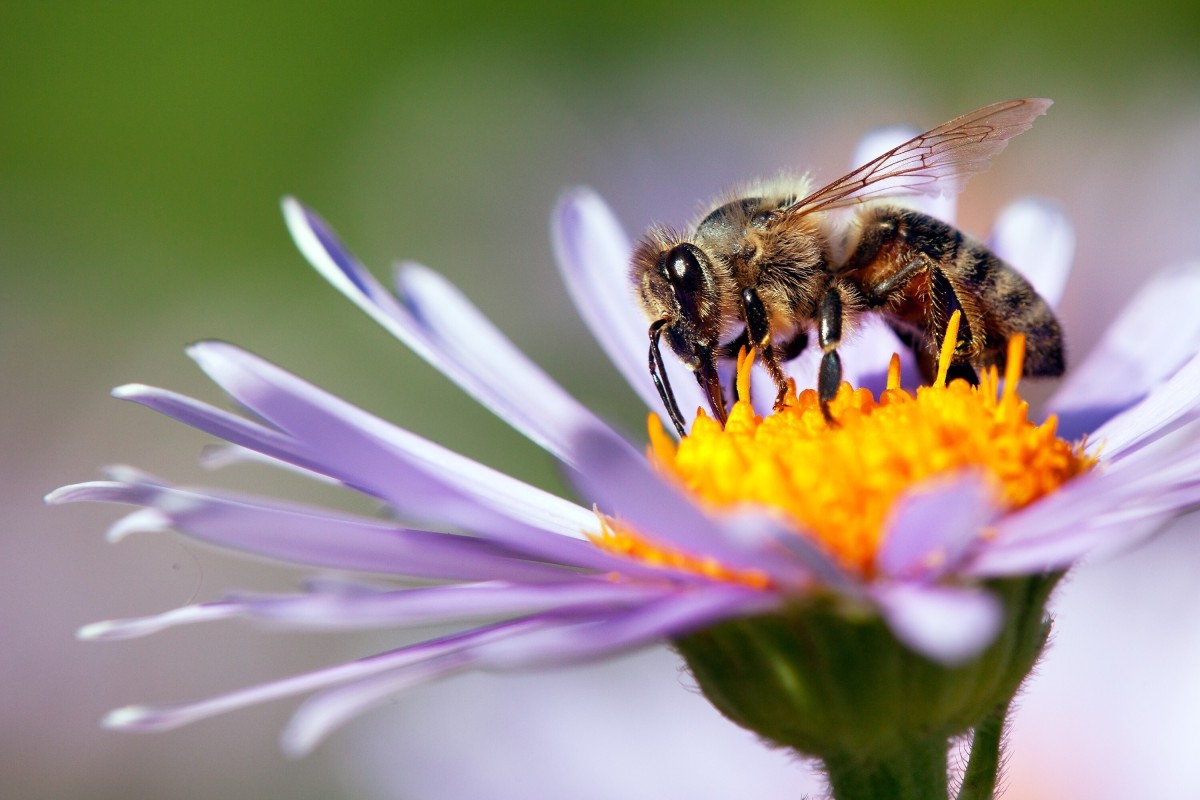- Researchers in the Netherlands have trained honeybees, which have a good sense of smell, to detect positive samples of the coronavirus
- This cheap method could be useful in countries where tests are scarce
 Who knew they could 'bee' so helpful?
Who knew they could 'bee' so helpful?Researchers in the Netherlands have trained bees, which have an unusually keen sense of smell, to identify samples infected with Covid-19, a finding they said could cut wait times for test results to just seconds.
To train the bees, scientists in the bio-veterinary research laboratory at Wageningen University rewarded them with sugar water after showing them samples infected with Covid-19. The bees would not get a reward after being shown a non-infected sample.
Once they got used to the system, the bees were able to spontaneously extend their tongues to receive a reward when presented with an infected sample, said Wim van der Poel, a professor of virology who took part in the project.
Could Keung To encourage Hongkongers to get the Covid-19 vaccine?
“We collect normal honeybees from a beekeeper and put them in harnesses,” he said. “Right after presenting a positive sample, we also present them with sugar water. And what the bees do is they extend their proboscis to take the sugar water.”
The bees extending their straw-like tongues to drink is confirmation of a positive coronavirus test result, according to the researchers.
It can take hours or days to get a Covid-19 test result, but the response from the bees is immediate. The method is also cheap, potentially making it useful for countries where tests are scarce, they said.
What do we know about the mutant coronavirus strains in Hong Kong?
But Dirk de Graaf, a professor who studies bees, insects and animal immunology at Ghent University in Belgium, said he did not see the technique replacing more conventional forms of Covid-19 testing anytime soon.
“It is a good idea, but I would prefer to carry out tests using classic diagnostic tools rather than honeybees. I am a huge bee lover, but I would use bees for purposes other than detecting Covid-19,” he said.
A vaccine expert answers your questions about the Covid-19 jab
“Insect sniffing” was effectively tested by the US Department of Defence to detect explosives and toxins in the 1990s, De Graaf said.
Moths, bees and wasps were used “for safety purposes to detect explosives as well as for medical diagnosis”, he said.
He said too little is known about the Wageningen test to determine how effective it really is, although he was open to the idea of bee tests providing an indication of illness when PCR tests are unavailable.
